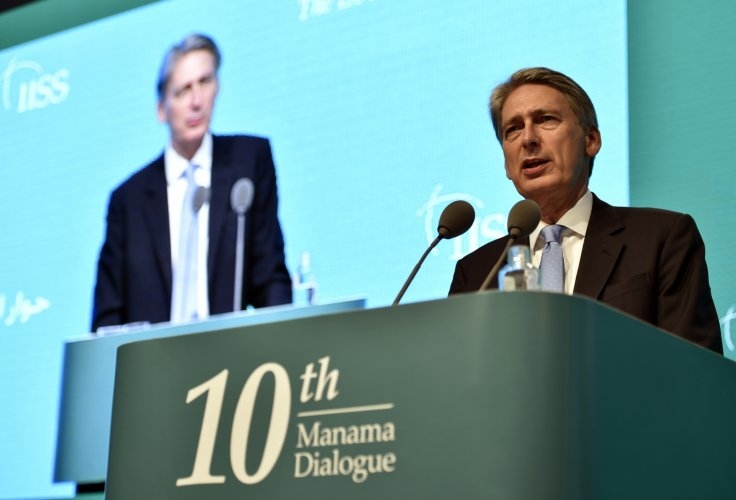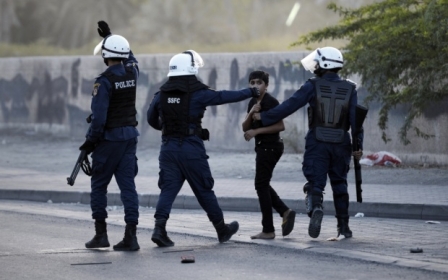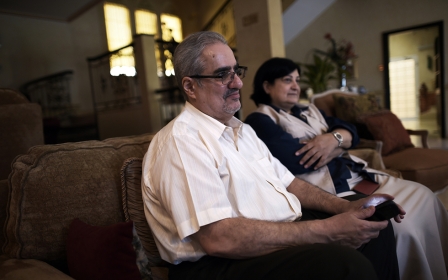British trade unions call for independent audit of UK aid to Bahrain

British trade unions have launched a campaign calling for an independent audit of UK government aid to Bahrain and an expose of “widespread and systematic” human rights abuses.
The Universities and Colleges Union (UCU), with the support of the Bahrain institute for Rights and Democracy (BIRD) and MENA Solidarity, on Thursday initiated an open letter which stated that the signatories were “appalled about the deteriorating human rights situation in Bahrain, and call upon the UK government to take immediate practical steps to end the suffering of civilians there.”
“Bahrain continues to receive support from the UK Foreign and Commonwealth Office, with the budget for assistance rising in 2015 from £1.5M in 2014 to £2.1M in 2015. We are shocked that there has been no independent assessment made for this spending of public money despite a clear deterioration in Bahrain’s human rights record.
“We call on such an assessment to be made and for the FCO to take on a more critical stance against violations of basic rights.”
The unions signing the letter included UNITE the Union, Unison, and host of others.
Ahmed Ali, head of legal affairs at BIRD, said that continued UK government aid to Bahrain reflected a wilful ignorance of continuing human rights abuses in the Kingdom.
“They say that Bahrain is on the path to reform, while the foreign affairs select committee and other bodies are saying otherwise,” he told Middle East Eye.
“They’ve kept to that line.”
Among the reform programmes that received UK government aid was the creation of Bahrain’s police ombudsman - which the UK claims is “first in the region” - to deal with complaints of maltreatment of protesters and other prisoners by the security services.
However, despite the UK boasting that the organisation won the “European Union’s annual human rights prize in the Gulf” human rights activists have criticised it as ineffective.
“We submitted over 40 complaints on behalf of victims and at the same time we submitted complaints to the UN on behalf of the same victims,” said Ahmed Ali.
“We didn’t receive a single response from the ombudsman while the UN were issuing communications to the government of Bahrain and the UN working group on arbitrary detention finding that there’s a systematic practice of torture there and systematic process of arbitrary imprisonment.”
He criticised the ineffectiveness of aid donated to reforming the country’s judiciary which was attacked as a “system of injustice” by Human Rights Watch last year.
In response to criticism of its aid to Bahrain, a UK Foreign & Commonweath Office spokeswoman told MEE: "The UK continues to encourage the Government of Bahrain to deliver on its international and domestic human rights commitments. The UK is providing a package of technical assistance to support the Government of Bahrain deliver reforms which have a particular focus on strengthening the rule of law and the protection of human rights.
"The UK’s technical assistance provides substantial support to the Ministry of Interior Ombudsman, Prisoners’ and Detainees’ Rights Commission (PDRC) and National Institute for Human Rights, all of whom provide independent oversight of the behaviour and standards of the police and detention facilities," she said. "The strength of the UK's relationship with Bahrain allows us to engage the Government of Bahrain constructively to support work to make these institutions and the judiciary more impartial, transparent, independent and effective."
'No freedom of association'
The creation of the new trade union-led initiative has held particular resonance due to the history of trade union activity in Bahrain, which has been particularly prominent in the Kingdom compared to the other Gulf monarchies where unionisation is either illegal or heavily suppressed.
Since 2011, however, many trade unionists have faced a crackdown from the government.
One prominent trade unionists, Mahdi Abu Dheeb, President of the Bahrain Teachers Association, is currently a five year jail sentence for encouraging strikes among teachers at the time of the Arab Spring protests.
“Trade unions have always had a relationship with unionists in Bahrain - it’s probably the only place in the region that has had that kind of movement for a long time,” said Ali.
“Unfortunately they’re very limited, there’s no freedom of association in Bahrain. If those unions or political societies should step out of place or go outside the government narrative they’ll be closed down.”
The UK and Bahrain have long established diplomatic and military ties reaching back to before the Kingdom’s independence in 1971.
Work is set to begin in September on the construction of a new British naval base in Bahrain, the first permanent Middle Eastern naval base the UK has created in four decades.
In a move described as with “cynical” by campaigners, the base is set to be named “HMS Juffair”, after a previous UK naval base established in the Kingdom in 1935.
"Naming the base HMS Juffair after its colonial era-predecessor is yet another brazen gesture by the British government to celebrate a legacy of repression that it should properly be ashamed by," Bahrain Watch’s John Horne told MEE.
"It is a cynical act of symbolism, intended to further ties with the Al-Khalifa regime, whose previous leader pleaded 'Why? No one asked you to go!' when Britain withdrew its forces in 1971."
Since the beginning of the Arab Spring protests in 2011, demonstrations in the country have been frequent with most activists calling for increased democratic rights and some even calling for the overthrow of the Khalifa monarchy.
More than 100 people have been killed since 2011, with numerous arrests of protestors and opposition leaders.
New MEE newsletter: Jerusalem Dispatch
Sign up to get the latest insights and analysis on Israel-Palestine, alongside Turkey Unpacked and other MEE newsletters
Middle East Eye delivers independent and unrivalled coverage and analysis of the Middle East, North Africa and beyond. To learn more about republishing this content and the associated fees, please fill out this form. More about MEE can be found here.




